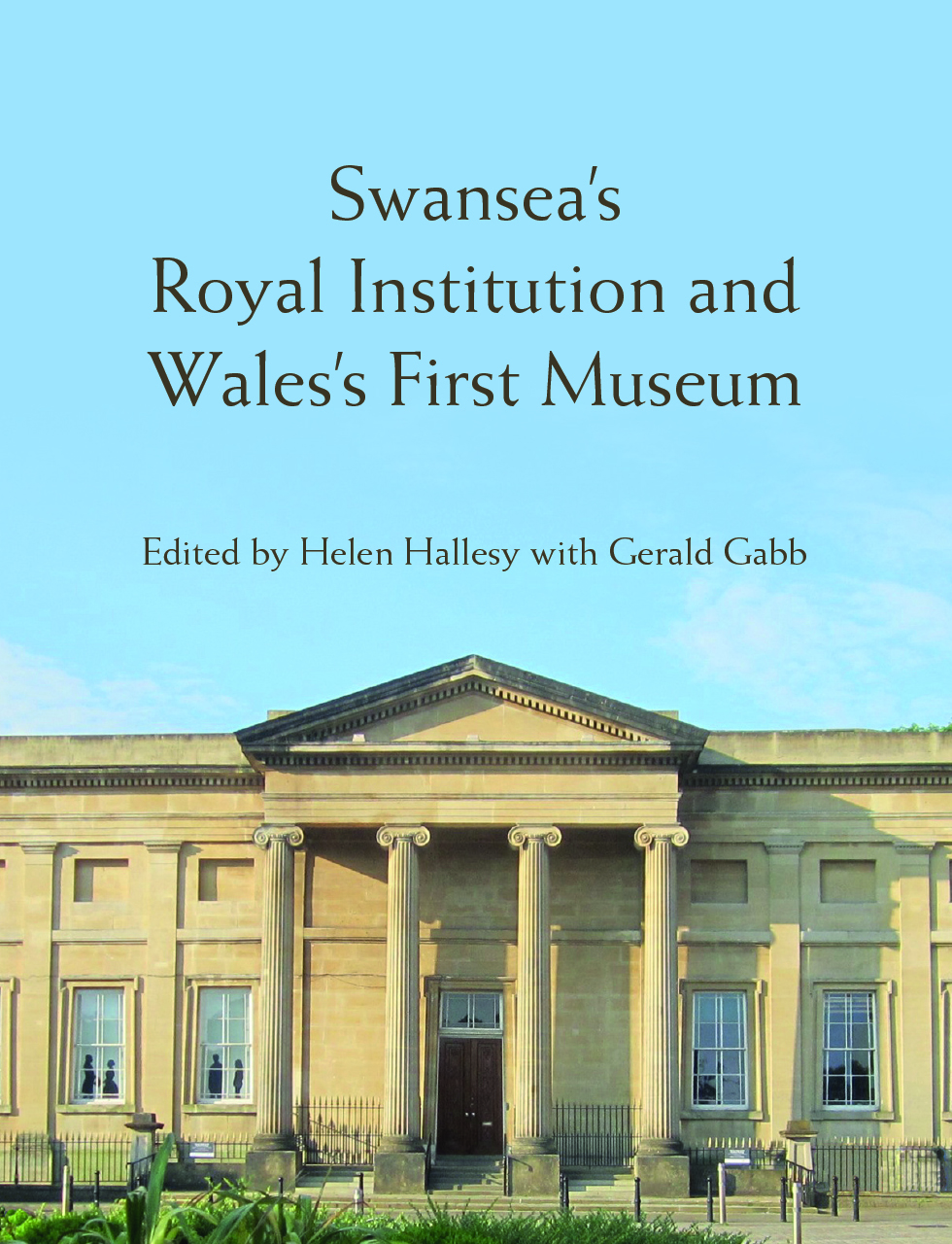Swansea’s Royal Institution and Wales’s First Museum
Editor(s) Helen Hallesy,Gerald Gabb
Language: English
Genre(s): History
- February 2024 · 728 pages ·246x189mm
- · Hardback - 9781837720903
- · eBook - pdf - 9781837720910
- · eBook - epub - 9781837720927
The Royal Institution of South Wales is a very special organisation, one of the few such institutions to survive into the twenty-first century. Founded in 1835, it opened Wales’s first museum in 1841, running it until 1990, and it remains today a thriving centre of culture. RISW’s original lecture theatre, library and laboratory demonstrate its early involvement in scientific research and education. This substantial and richly illustrated book sets the story in context – in local, national and international terms – and presents RISW as a significant contributor to the accumulation and dissemination of knowledge. The book covers the growth of RISW, the notable members it attracted, later challenges it faced and its survival into the world of today. The formation of the museum’s many varied collections is described by leading specialists, including the developing sciences – geology; natural history; botany; archaeology; Egyptology and photography; the decorative arts; historical records; coins; maps; and costume.
Notes on Contributors
Acknowledgements
Preface Lyndon Morris
Introduction Jenny Sabine
PART 1
Chapter 1The Swansea Context Louise Miskell
PART 2 Foundations and Early Period
Chapter 2 Beginnings
2.1 Origins and Ambitions Karmen Thomas
2.2 The BAAS meeting 1848 John Tucker
2.3 The Role of Women in the RISW Jenny Sabine
2.4 The Lectures Programme Gerald Gabb and Helen Hallesy
2.5 Education 1835-1939 Gerald Gabb
Chapter 3 Swansea Museum
3.1 Planning and funding the building Helen Hallesy
3.2 Uses of building and extensions Gerald Gabb
PART 3 The Collections
Chapter 4 Sciences
Introduction Iwan Morus
4.1 Geology Ronald Austin
4.2 Botany Kevin Davies
4.3 Other Natural Sciences Emma Williams
4.4 Photography Katy Williams
Chapter 5 Artefacts and Records
5.1 The Archives Andrew Dulley
5.2 The Library Gerald Gabb
5.3 Maps and Charts Phil Treseder
5.4 Local Historians Gerald Gabb
5.5 Art Helen Hallesy
5.6 Ceramics Helen Hallesy
5.7 Archaeology Gerald Gabb
5.8 Egyptology Caroline Graves-Brown
5.9 Numismatics Alan and Noel Cox
5.10 Costume Deborah Griffiths
5.11 Miscellaneous Phil Treseder
PART 4 Later developments
Chapter 6
Introduction Elizabeth Belcham
6.1 The Museum during WW2 Helen Hallesy
6.2 The transfer to Swansea University Syd Howells
6.3 Swansea University to Swansea City Council Iwan Davies
6.4 Education post 1939 Gerald Gabb
Chapter 7 Associated Societies
Introduction Gerald Gabb and Helen Hallesy
7.1 Swansea Farmers Club Helen Hallesy
7.2 Musical Groups Gerald Gabb
7.3 Literary and Scientific Society Gerald Gabb
7.4 Swansea Astronomical Society Helen Hallesy
7.5 Swansea Geological Society Helen Hallesy
7.6 Swansea Scientific Society Gerald Gabb
7.7 Field Naturalists Society Gerald Gabb
7.8 Swansea Photographic Association Helen Hallesy
7.9 Welsh Society Gerald Gabb
7.10 Philatelic Society Helen Hallesy
7.11 Shiplovers’ Society Helen Hallesy
7.12 Gower Society Ruth and Malcolm Ridge
7.13 Swansea Little Theatre Eryl Jenkins and Dave Taylor
7.14 Gower Ornithological Society Gerald Gabb
List of RISW Presidents 1835-2022
Bibliography
List of Subscribers
Index
Author(s): Helen Hallesy
Helen Hallesy is a science graduate and independent researcher on the history of the south Wales ceramic industries, focusing primarily on Swansea. She is the author of several books and articles on the subject, most recently publishing ‘Swansea Commemorative Pottery’ (2017). She is a long-standing Council member and Honorary Vice President of RISW.Author(s): Gerald Gabb
Gerald Gabb taught History before becoming education officer for Swansea Museums Service. He is a RISW Council member and, since 2009, editor of the Swansea History Journal / Minerva. He has written extensively on the locality, most recently publishing Swansea and its History, II, The Riverside Town (2019).

